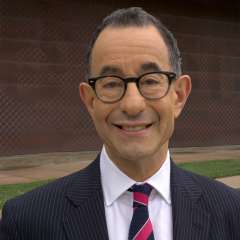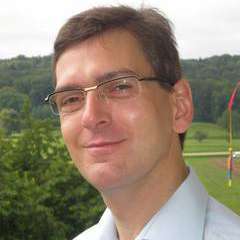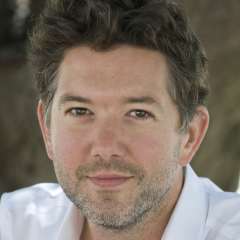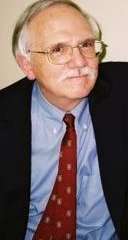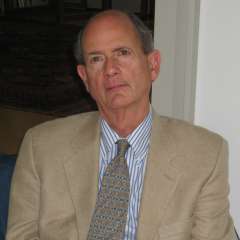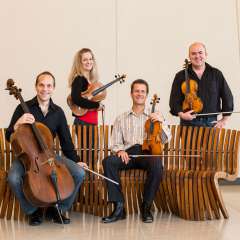Speaker Profiles
Bio:
Colin B. Bailey became the Director of the Fine Arts Museums of San Francisco in June 2013. He oversees the de Young Museum in Golden Gate Park and the Legion of Honor in Lincoln Park.
Prior to his arrival in California, Bailey served as Deputy Director and Peter Jay Sharp Chief Curator at The Frick Collection in New York. He had been Deputy Director and Chief Curator at the National Gallery of Canada, Senior Curator at the Kimbell Art Museum in Ft. Worth, and held curatorial posts at the Philadelphia Museum of Art and the J. Paul Getty Museum earlier in his career.
Bailey earned a DPhil in Art History from the University of Oxford. A specialist in 18th- and 19th-century French art and responsible for many celebrated exhibitions and publications, he has been an Officier de L’Ordre des Arts et des Lettres since 2010.
Bio:
Tom Beghin has been at the forefront of a new generation of interpreters of 18th- and early-19th-century music. His release on Blu-ray of Haydn’s complete works for solo keyboard on seven instruments in nine “virtual rooms” was hailed as “one of the most audacious recording enterprises in recent memory” (blu-ray.com) and won a 2011 Juno nomination for “Music DVD of the Year.” With classicist Sander Goldberg he co-edited Haydn and the Performance of Rhetoric, winner of the 2009 Ruth Solie Award from the American Musicological Society. His monograph The Virtual Haydn: Paradox of a Twenty-First-Century Keyboardist is forthcoming from the University of Chicago Press. After earning his doctorate from Cornell University (Ithaca, NY), Beghin taught at UCLA, and since 2003 has been Associate Professor at the Schulich School of Music of McGill University in Montreal. On temporary leave from McGill, he’s currently Senior Researcher at the Orpheus Institute in Ghent, Belgium.
Talk Description:
An Opus for the Insightful World
Haydn’s “Auenbrugger” Sonatas and the Viennese Salon
Tom Beghin
McGill University / Orpheus Institute
The year 1780 marked Haydn’s first collaboration with publisher Artaria in Vienna: together they dedicated the Six Sonatas Hob. XVI:35-39, 20 to Katharina and Marianna von Auenbrugger, two of the finest musicians in Vienna and daughters of the respected physician Leopold von Auenbrugger. Taking its cue from Haydn’s famous avertissement (that two “pieces” share the same “idea” but different “execution”), this paper examines the opus’ extraordinary focus both as six sonatas (unfolding like a single tragedy in C Minor) and as eighteen pieces (together forming a gallery of portraits). I explore cross-disciplinary connections of Haydn’s music with, on the one hand, “characterizing” efforts by the contemporary sculptor F. X. Messerschmidt (and his intriguing Character Heads) and, on the other, with the physiognomic theories of J. C. Lavater: both would have been a hot topic of debate in the Viennese salon, where Haydn was an eager and welcome guest.
Bio:
Professor of Musicology at the Faculty of Music, University of Toronto, Caryl Clark’s research and teaching interests include Haydn studies, Enlightenment aesthetics, interdisciplinary opera studies, opera and ethnicity, gender studies in music, and the politics of musical reception. Publications include the Cambridge Companion to Haydn (2005) and Haydn’s Jews: Representation and Reception on the Operatic Stage (Cambridge 2009), and recent chapters appear in Performing Salome, Revealing Stories (Ashgate), and ‘Music’s obedient daughter’ or Opera Libretto: from source to score (Rodopi). She is currently co-editing the Cambridge Haydn Encyclopedia (anticipated completion 2017). She currently holds a SSHRC Insight Grant, and previously held a Halbert Foundation Grant at Hebrew University investigating the Jewish Diaspora in music, theatre and culture. An active member of the American Musicological Society, she currently serves on the AMS publication committee.
Bio:
Wolfgang Fuhrmann, who was born in Vienna, graduated at the University of Vienna with a Ph. D. thesis on medieval musical ethics/aesthetics. He has worked extensively as a freelance music journalist for Austrian and German newspapers such as the Berliner Zeitung and the Frankfurter Allgemeine Zeitung, and taught at the Humboldt University of Berlin, at the universities of Leipzig and Vienna and at Stuttgart conservatory. Since 2010, he has held a position as „Assistent“ (roughly equivalent to Assistant Professor) at the Institute of Musicology at the University of Vienna. In 2013-14, he was visiting interim professor for the Sociology and Historical Anthropology of Music at Humboldt University, Berlin. Fuhrmann’s research interests include music of the fifteenth century, Haydn and Haydn reception, Richard Wagner and film music.
Bio:
Stephen Hinton is the Avalon Foundation Professor in the Humanities at Stanford University. Professor of Music and, by courtesy, German, he also serves as the Denning Family Director of the Stanford Arts Institute. From 2006-2010 he was Senior Associate Dean for Humanities & Arts in the School of Humanities and Sciences, and from 1997-2004 chairman of the Department of Music. He has published widely on many aspects of modern German music history. His most recent book,,Weill’s Musical Theater: Stages of Reform, (University of California Press, 2012), won the 2013 Kurt Weill Prize for outstanding scholarship in musical theater since 1900.
Bio:
James Johnson is a cultural historian who writes and teaches about modern and early modern Europe. His interests are French history, the history of Venice, and music history. His book Listening in Paris: A Cultural History appeared in 1995. The first book of a two-volume work on masking, disguise, and identity in European history, Venice Incognito: Masking in the Serene Republic, appeared in 2011. He is now at work on its successor, Means of Concealment: French Identity and the Self.
Professor Johnson is the recipient of numerous research grants and fellowships, including awards from the Fulbright Scholar Program and the American Council of Learned Societies. He is a 2014-15 Guggenheim Fellow.
Professor Johnson is an active pianist who gives regular lecture/performances on music in its social and cultural context. Recent topics have included Beethoven and the Art of Infinite Yearning, Bach and the Divine Idea, and French Impressions, A Musical Journey.
Bio:
Nicholas Mathew is Associate Professor and Weisman Schutt Chair in Music at the University of California, Berkeley. He is the author of Political Beethoven (Cambridge, 2013) and co-editor, with Benjamin Walton, of the volume The Invention of Beethoven and Rossini (Cambridge, 2013). From 2010 until 2013 he was co-editor of the journal Eighteenth-Century Music, and he currently sits on the of the Advisory Board of the journal Eighteenth-Century Studies. Most of his published work has focused on the relationship between musical practices and political life in the eighteenth and nineteenth centuries.
Bio:
William Weber, Professor of History Emeritus at California State University, Long Beach, studied history and music at Harvard College and the University of Chicago. He has written Music and the Middle Class Concert Public, 1830-1848; Rise of Musical Classics in 18th-Century England; and Great Transformation of Musical Taste: Concert Programming from Haydn to Brahms. He has been active at the William Andrews Clark Memorial Library of UCLA and was Leverhulme Visiting Professor at the Royal College of Music. Having published articles on 18th-century French musical life early in his career, he is presently working on the evolution of musical journalism in that period and is co-editing the Oxford Handbook of Opera Canon with Cormac Newark.
Bio:
James Webster is the Goldwin Smith Professor of Music at Cornell University. He is the author of Haydn’s “Farewell” Symphony and the Idea of Classical Style, the editor of Haydn’s string quartets Opp. 42, 50, and 54–55 in Joseph Haydn: Werke, and an editor of Haydn Studies, Opera Buffa in Mozart’s Vienna, and Beethoven Forum. He has published widely on Haydn (including the Haydn article in the revised New Grove Dictionary of Music and Musicians, also published as a separate volume), Mozart (especially his operas), Beethoven, Schubert, and Brahms, as well as editorial and performance practice, and the historiography of music. In theory he specializes in issues of musical form, Schenkerian analysis, and analytical methodology.
Webster’s honors include the Einstein and Kinkeldey Awards of the American Musicological Society, two Senior Research Fellowships from the National Endowment for the Humanities, a Guggenheim Fellowship, and a Research Fellowship of the Alexander von Humboldt Foundation. He has served as President of the American Musicological Society, and is a Fellow of the American Academy of Arts and Sciences.
Geoff Nuttall, violin
Mark Fewer, violin
Lesley Robertson, viola
Christopher Costanza, cello
“A sound that has just about everything one wants from a quartet, most notably precision, warmth and an electricity that conveys the excitement of playing whatever is on their stands at the moment.” – The New York Times
Established in 1989, the St. Lawrence String Quartet has developed an undisputed reputation as a truly world class chamber ensemble. The quartet performs over 120 concerts annually worldwide and calls Stanford University home, where the group is Ensemble in Residence
The SLSQ continues to build its reputation for imaginative and spontaneous music-making, through an energetic commitment to the great established quartet literature as well as the championing of new works by such composers as John Adams, Osvaldo Golijov, Ezequiel Vinao, and Jonathan Berger.
SLSQ maintains a busy touring schedule. The quartet’s 2014/15 season includes a three-concert series at the Library of Congress in Washington DC, during which the quartet will play Stradivari instruments from the library’s prized collection. In January, 2015, SLSQ will premiere a string quartet by John Adams—his third work composed for SLSQ—at Stanford University. The quartet will also perform and give master classes around North America, with visits to Houston, Toronto, Philadelphia, Oberlin, Durham, and many other cities. During the summer season, SLSQ is proud to continue its long association with the Spoleto Festival in Charleston, SC.
Since 1998 the SLSQ has held the position of Ensemble in Residence at Stanford University. This residency includes working with music students as well as extensive collaborations with other faculty and departments using music to explore a myriad of topics. Recent collaborations have involved the School of Medicine, School of Education, and the Law School. In addition to their appointment at Stanford, the SLSQ are visiting artists at the University of Toronto. The foursome’s passion for opening up musical arenas to players and listeners alike is evident in their annual summer chamber music seminar at Stanford and their many forays into the depths of musical meaning with preeminent music educator Robert Kapilow.
Lesley Robertson and Geoff Nuttall are founding members of the group, and hail from Edmonton, Alberta, and London, Ontario, respectively. Christopher Costanza is from Utica, NY, and joined the group in 2003. Mark Fewer, a native of Newfoundland, begins his first season with the quartet in 2014, succeeding violinist Scott St. John. All four members of the quartet live and teach at Stanford, in the Bay Area of California.
